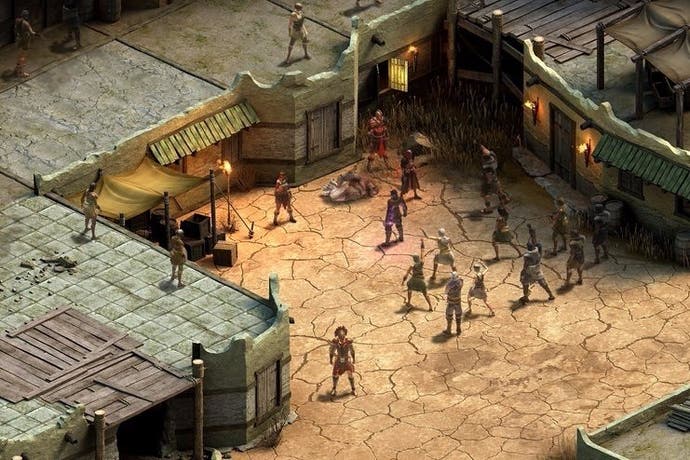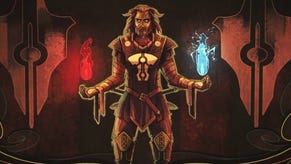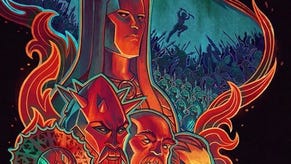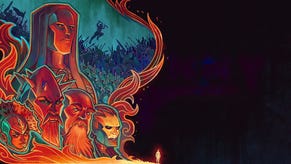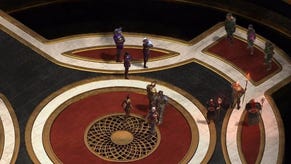Tyranny brings out Obsidian's dark side
It's good to be bad: first impressions of this devious RPG.
Tyranny isn't the story of a village boy/girl thrust into greatness, embarking on some seemingly hopeless quest to avenge a loved one, recently slain at the hands of The Bad Guy.
No, in Tyranny, The Bad Guy has already won. And you helped him.
"Not only were you on their side," says lead producer, Matthew Singh. "You were actually one of their leaders. You don't start out as your average farmboy that's picked up a rusty dagger for the first time, murdering rats in a sewer. You start this game with a position of authority."
Pillars of Eternity may have been the Baldur's Gate 3 we'd been waiting for, but I'm glad that Obsidian is ready to try something different here. I've saved the world plenty of times and I think I'd quite like to play a character who's version of 'evil' extends to a little more than pushing that fella out of a window in Mass Effect 2.
That being said, it's still a little unclear as to what your goal will be within the world of Tyranny. I was shown a brief demo in which the player arrives at a village to help maintain order, in the name of your boss, Kyros the Overlord, although I got the impression that this was at a fairly early point in the game's storyline.
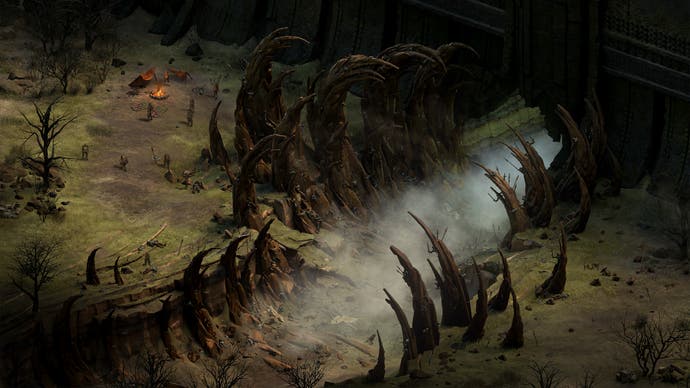
This village didn't have a great time during the initial subjugation of the lands and is badly scarred by magical energies, which prevent the locals from doing useful things like growing crops to feed your armies. You're tasked with resolving this problem and we were shown a couple of ways in which that could play out.
Interestingly, the state of this village and how you choose to go about your task seems to be heavily linked to a series of decisions you make whilst creating your character.
"Depending on the choices you make there, you're actually shaping the world you're going to play in," explained Singh.
From what I was shown, this changes just how badly the magical energies in this area have ravaged the town and also your own relationship with the faction that controls it: a group known as the Scarlet Chorus.
So first time around, the player walks into the village and uses their authority to free the prisoner and then hand him over to their allies, the Scarlet Chorus, and most people think this is a good thing. Well, other than the local townspeople, who feel like you're continuing to subjugate them, but I imagine that comes with the job.
At this point, the developer loaded up a second save file, in which the player's decisions had already led to part of the village falling away into a large, magical ravine. Nice one, player. Aside from that, the setup is relatively familiar: there's still a prisoner to deal with and an angry mob of townsfolk. The Scarlet Chorus are also still in control of this region, but importantly, they're now considered a rival faction. You both work for Kyros, but you don't get on so well.
Anyway, this time the player walks into the village, immediately murders the prisoner and in doing so, triggers an encounter with the Scarlet Chorus. One thing I really like here, by the way, is that in both situations the player receives the relevant experience. You're not being unfairly rewarded because you want to play a character that avoids confrontation and I think that will lead to a much better role-playing game.
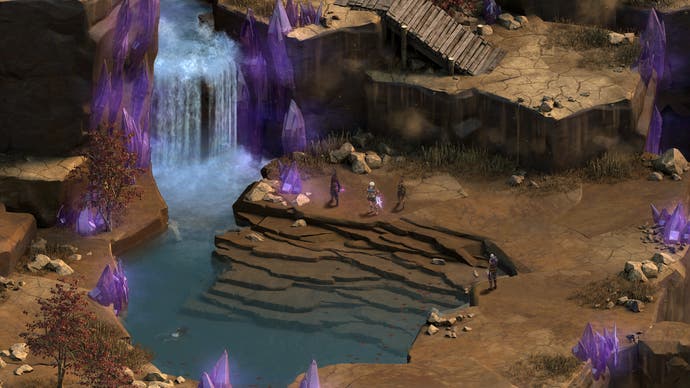
"Your character's going to grow their skills as they use them, both in combat, but also in our conversations," said Singh. "In a lot of RPG systems, you may feel that if you're not in combat, you're no longer growing your character, which might discourage you from making interesting choices. We didn't want that to happen here."
This idea that players shouldn't be encouraged to make choices that they don't find interesting seems to extend to the combat as well. You're not locked into a certain class type in Tyranny and I was promised that a warhammer-wielding, full-plate armour wearing, battle mage is absolutely a viable character build. But more than that, we were shown how party members can unlock 'companion combos', once your character has built up a relationship with them. These combos are especially powerful, with one example having the player throwing an archer buddy into the air, who then proceeds to rain arrows down on their opponents. These look like important abilities, which is why I was delighted to hear the developer explain that they can be unlocked either through friendship, or through hatred. Once again, we're promised, you won't be penalised for the role you want to play.
And that's exciting! I'm eager to experience the story of a character that's a little more complex. Morality shouldn't always come to down to black and white decisions, or for that matter, red or blue.
Tyranny sounds like it might understand that. I'm not sure I'm quite ready to shake the skepticism that comes with hearing about RPGs that promise ambitious branching narratives and true player agency, but then again, this is Obsidian we're talking about. This is a team that's proven they still understand why people fell in love with the roleplaying genre in the first place and now, I guess, it's time to see if they can keep it moving forwards.
